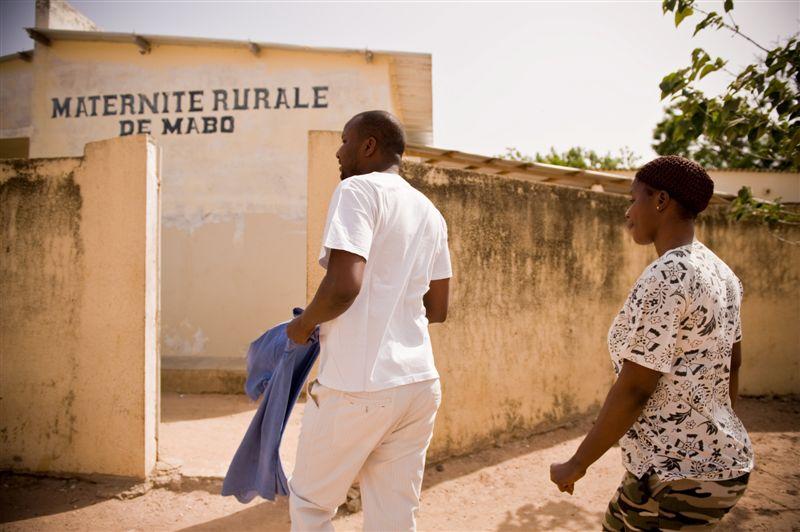Where We Work
See our interactive map


Today's global health students grapple with the legacy of colonialism in global health. Photo by Clement Tardiffe for IntraHealth International.
The pandemic offers a stark example of global health’s colonialist nature and history.
As COVID-19 started to rattle the world this year, countless strangers, acquaintances, and friends commented to me, “What an interesting time to study global health.”
In May, I finished my first year of a Master of Public Health degree at the University of North Carolina at Chapel Hill (UNC) Gillings School of Global Public Health. I agree—both the global pandemic and other seismic shifts, including amplified calls for decolonization and the global rise of the Black Lives Matter movement—make this a momentous time for global health.
Dr. Ranjan Datta defines decolonization as “a continuous process of anticolonial struggle that honors Indigenous approaches to knowing the world, recognizing Indigenous land, Indigenous peoples, and Indigenous sovereignty—including sovereignty over the decolonization process.”
The COVID-19 pandemic offers a stark example of global health’s colonialist nature and history. Throughout the pandemic, the world has turned to public health experts for guidance. However, as noted by a letter to the Lancet, prevailing colonialist notions of expertise center voices in the Global North instead of the voices and actions of experts in the Global South, experts well-versed in managing epidemics.
From redefining expertise to re-examining authorship and publishing and agenda-setting, global health has decolonizing work to do. It’s encouraging that the word “decolonize” has started to make it into global health board rooms and mission statements. Conferences around the globe now bring together activists, visionaries, and scholars to discuss and envision a decolonized version of global health. These actions serve as a small start.
Over the last month, individuals, communities, institutions, and nations have been forced to reckon with their histories and examine the strong and prominent forces of structural racism. Global health, too, must question its history and the ways structural racism infects our organizations, programs, funding, and ideas.
Where did the field of global health come from, and what was its original purpose? What statues and monuments has the field of global health erected that do not serve the good of the global people? How do global health practitioners, organizations, and methods become both decolonized and antiracist, two intertwined yet distinct strivings?
This intensified commitment and the possibility that antiracist words will translate into antiracist action make this a pivotal time for global health.
As a student, these calls leave me with mixed emotions and abounding questions. I am a white woman born and raised in the United States. What is my role within the field of global health? Where do my presence and voice promote the decolonization and antiracist work of global health, and where do I erroneously occupy center stage?
When I interviewed for my IntraHealth-UNC Summer Fellowship at IntraHealth International, I asked how IntraHealth works to decolonize its practice. I asked how my summer project—quantitative analysis of seasonal contraceptive discontinuation—fit within efforts to decolonize.
I chose to become a summer fellow at IntraHealth largely because IntraHealth was willing to embrace those questions. IntraHealth was willing to say, we have work to do, and we are trying.
While using R to analyze global data sets this summer, I have continued to ask myself how my project contributes to or detracts from a decolonized and antiracist form of global health. Yes, the summary of my analysis informs experts and health workers on the ground, but is it my role to perform that analysis in the first place? Questions of decolonization and antiracism do not often hold easy answers.
Throughout my time as a fellow, I’ve seen IntraHealth continue to ask difficult questions. I have seen IntraHealth hold community conversations on antiracism and make a public commitment to examine the ways racism affects its practices and policies. IntraHealth is attempting to seize this moment in global health—a moment ripe for change and growth.
In a couple of weeks, I will return to classes and embark on my second year of school, an intense time of learning and preparing for a life in global health. I will hone my skills in data collection, analysis, and grant-writing. But how else do I prepare for a transforming field of global health?
I must make a lifelong commitment to learn and listen; to support, not just lead; to unlearn and relearn. I must prepare to challenge the status quo when the status quo threatens decolonization, antiracism, solidarity, and health. I must prepare to accept the moments when others challenge me.
It is an exciting time for our discipline, and I cannot wait to see where I can follow and support new visionaries and leaders in a transformed field of global health.
Get the latest updates from the blog and eNews




